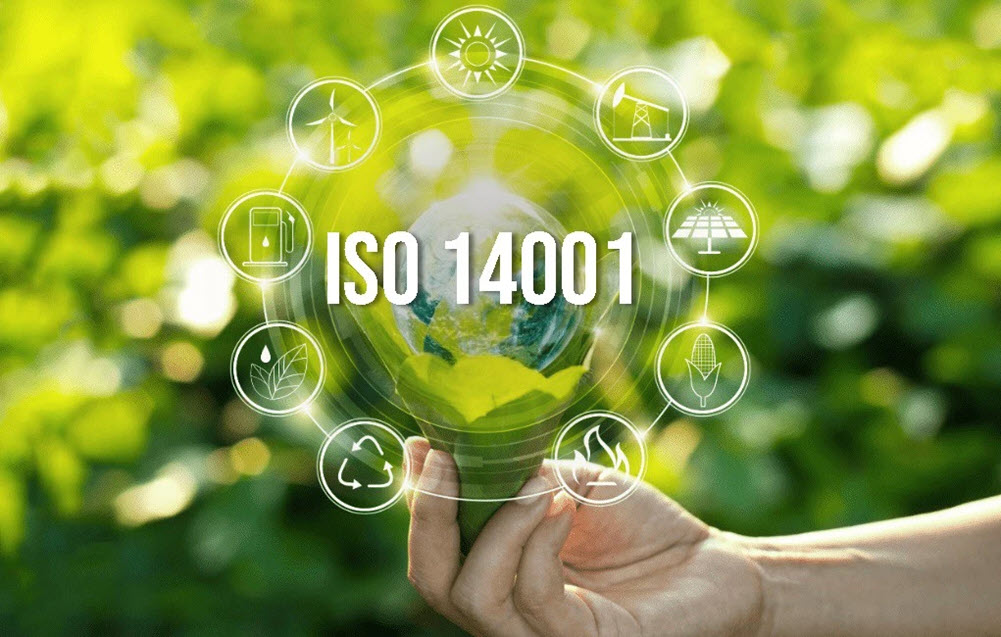EQMS Blog

Benefits of an EMS 14001
Environmental sustainability has become a critical focus for organisations worldwide. With increasing regulatory demands and growing societal awareness of environmental issues, businesses are under pressure to operate in a more environmentally responsible manner. Implementing an Environmental Management System (EMS) certified to ISO 14001 can help organisations meet these challenges. EMS 14001 provides a structured framework for managing environmental responsibilities, improving operational efficiency, and enhancing stakeholder trust. In this article, we will explore the key benefits of implementing an EMS, from regulatory compliance to cost savings and improved reputation.
Regulatory Compliance Made Simple with EMS 14001
One of the most significant benefits of implementing EMS 14001 is its ability to streamline regulatory compliance. Environmental regulations are becoming increasingly stringent, and failure to comply can result in substantial fines, legal disputes, or even the suspension of operations. An Environmental Management System helps organisations navigate these complexities by providing a structured approach to identifying, monitoring, and managing compliance requirements.
Through the implementation of an EMS, companies can establish processes to regularly assess their legal obligations, ensuring they stay up to date with evolving regulations. Additionally, the system encourages proactive measures to prevent potential non-compliance issues before they arise. This can include proper waste disposal, pollution prevention, and adherence to emission standards.
For example, an EMS 14001-certified organisation will often perform regular environmental audits to ensure all processes align with current laws. This reduces the risk of unexpected fines or penalties and demonstrates to regulators that the business is committed to operating responsibly.
Cost Savings and Operational Efficiency
While some view environmental initiatives as an added expense, EMS 14001 often leads to significant cost savings over time. By identifying inefficiencies in resource use, waste management, and energy consumption, organisations can streamline their operations and reduce expenses.
One of the key elements of an EMS, is the identification and evaluation of environmental aspects and impacts. This allows businesses to pinpoint areas where resource usage can be minimised. For instance, reducing energy consumption not only lowers utility bills but also decreases the organisation’s carbon footprint. Similarly, adopting better waste management practices can lead to cost reductions through recycling and reduced disposal fees.
Additionally, EMS 14001 fosters a culture of continuous improvement, encouraging employees to identify and implement sustainable practices. Over time, this focus on efficiency can lead to enhanced productivity, reduced operational costs, and a competitive edge in the marketplace.
A case study involving a manufacturing firm that adopted an ISO 14001 compliant Environmental Management System, revealed that the company reduced its energy costs by 15% within the first year. This achievement was made possible by implementing energy-efficient machinery and optimising production schedules based on energy demand. The financial savings far outweighed the initial investment in the EMS, proving its long-term value.
Strengthened Reputation and Stakeholder Trust With EMS 14001
In today’s environmentally conscious world, stakeholders, including customers, investors, and employees, are increasingly favouring organisations that demonstrate a commitment to sustainability. Achieving EMS 14001 certification can significantly enhance an organisation’s reputation and build trust among key stakeholders.
For customers, an ISO 14001 certified organisation stands out as one that takes environmental responsibilities seriously. Many consumers actively seek out businesses with green credentials, making an EMS a powerful marketing tool. Displaying the certification on promotional materials and packaging can instil confidence and attract environmentally conscious customers.
From an investor perspective, EMS 14001 signals robust risk management practices. Investors are increasingly considering Environmental, Social, and Governance (ESG) factors when making decisions. Having an EMS 14001 certification demonstrates that a business is actively managing its environmental risks, which can make it more attractive to potential investors.
Moreover, an ISO 14001 Environmental Management System can enhance employee engagement and morale. Employees are more likely to feel proud of their workplace when they know it operates ethically and responsibly. A positive environmental reputation can also attract top talent, as many job seekers prioritise working for companies that align with their values.
Conclusion
Implementing an EMS 14001 offers a wealth of benefits for organisations aiming to operate sustainably and responsibly. From ensuring regulatory compliance to improving operational efficiency and strengthening stakeholder trust, the advantages are clear. EMS 14001 provides businesses with a structured framework to manage their environmental impact effectively while reaping financial and reputational rewards.
By adopting an ISO 14001 certified management system, organisations not only contribute to a healthier planet, but also position themselves as leaders in the transition towards sustainable business practices. In an increasingly competitive and environmentally conscious market, this certification is not just a compliance tool—it’s a strategic advantage.
If you are considering implementing a ISO 14001 Environmental Management System (EMS) within your organisation, feel free to contact us to discuss how our ISO 14001 Consultants are able to support with developing and implementing your EMS.
Continue to ISO 14001 Consultants
Request a free consultation
Contact us to discuss your needs and see how we can support to reach your goal.

Recent posts

Health, Safety, and Environmental (HSE) audits are crucial for ensuring that organisations comply with relevant safety and environmental regulations. They not only help in maintaining a safe working environment but...

An Integrated Management System (IMS) combines several management systems, such as Quality Management System (QMS), Environmental Management System (EMS) and Occupational Health and Safety Management System (OHSMS) amongst other, into...

In today’s competitive market, businesses are under increasing pressure to meet high standards in Health, Safety, Quality, and Environmental (HSQE) management. Ensuring compliance with legal regulations, maintaining a safe workplace,...
Just a Few of Our Clients
Request a Free Consultation
Contact us to discuss your needs and see how we can support to reach your goal.












